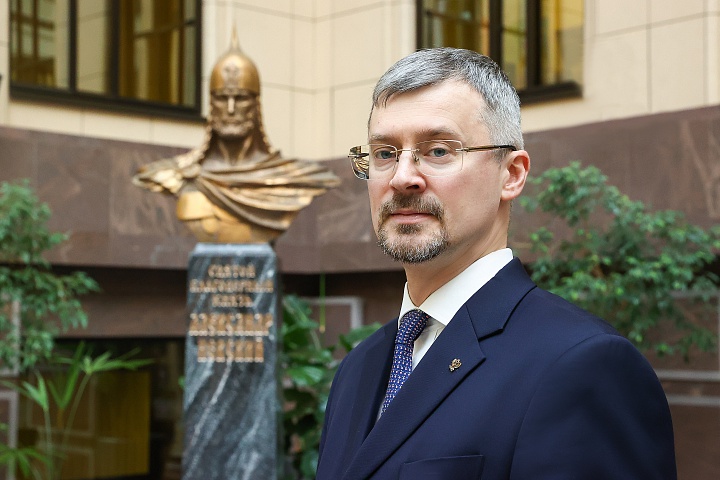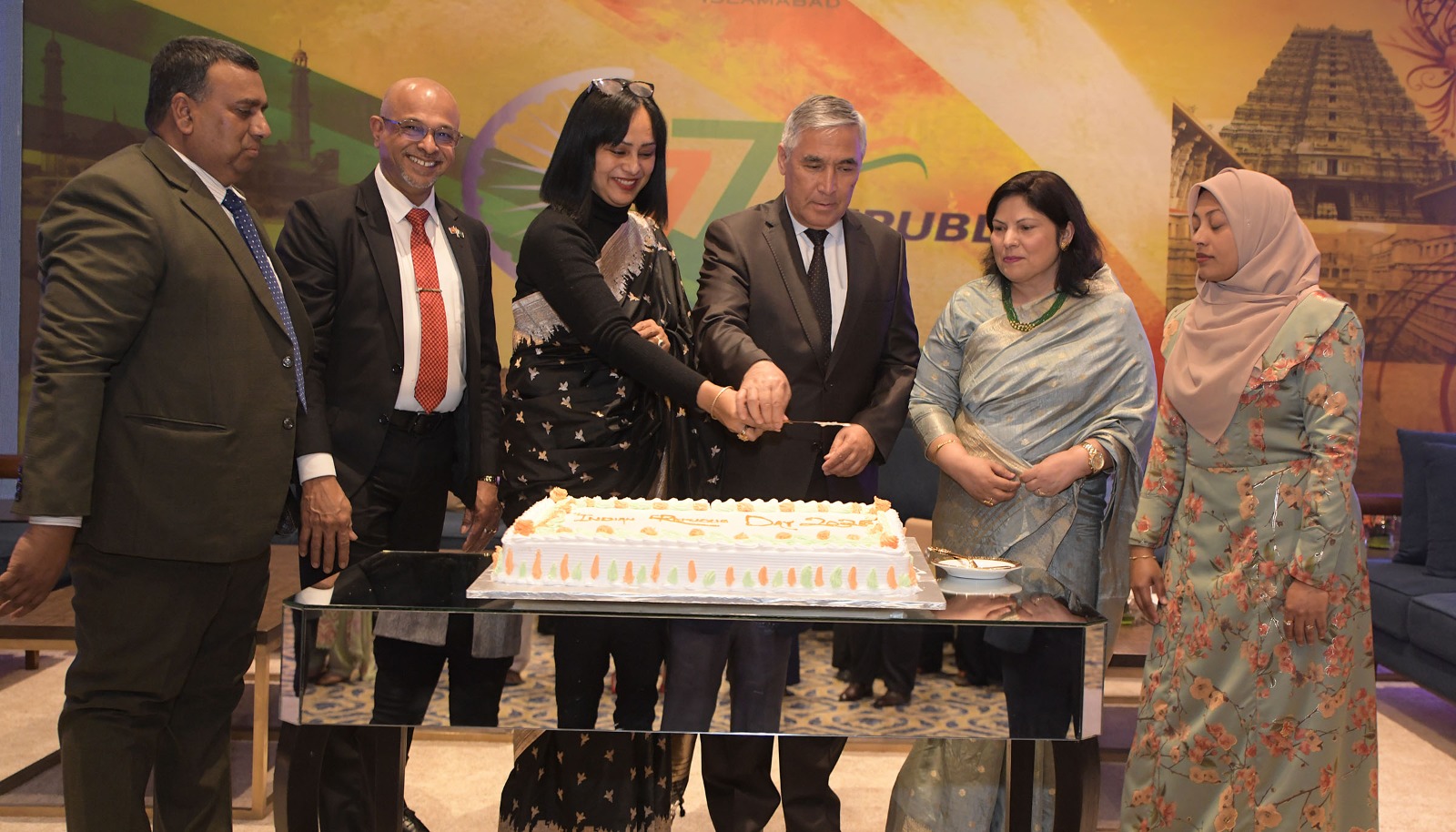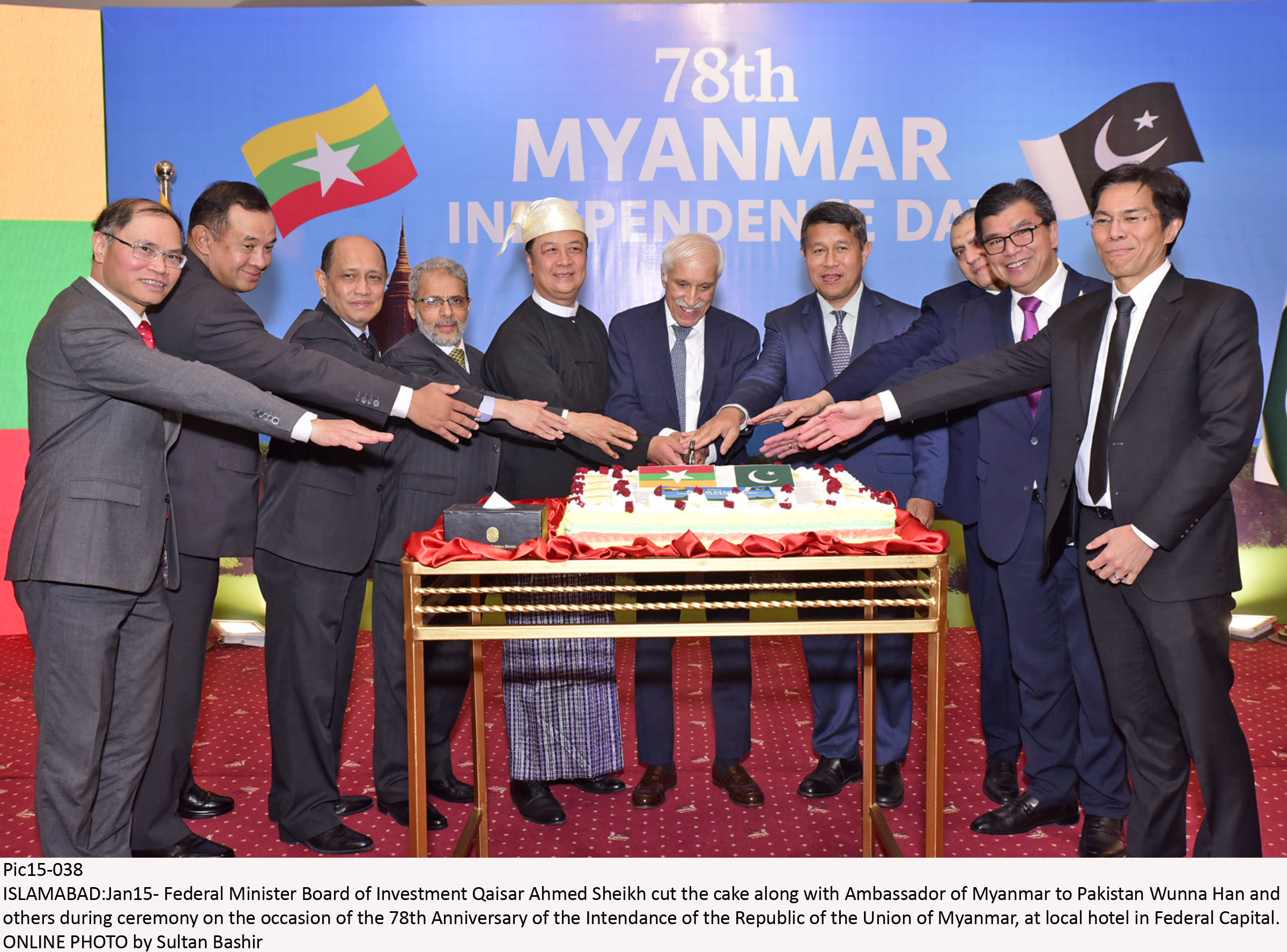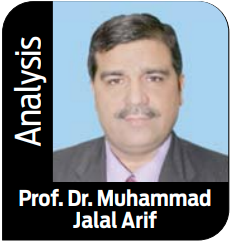
Interview of Russian Ambassador to Pakistan H.E. Mr. Albert Khorev to the TASS News Agency
By Ruslan Bekniyazov
In an interview with the TASS News Agency, Albert Khorev, Russia’s new Ambassador to Pakistan, gave an overview of the cooperation between Moscow and Islamabad and spoke about the two countries’ prospects for engagement within the Shanghai Cooperation Organization (SCO) and the Eurasian Economic Union (EAEU), as well as Russia’s approach to the Afghan settlement.
What are the key areas of bilateral cooperation between Russia and Pakistan?
Russia-Pakistan relations are currently enjoying a renaissance. We can see the pace of our bilateral engagement accelerating. We have noted an increase in contacts across the board.
We have regular political dialogue, including at a high level. Last October, Russian President Vladimir Putin met with Anwaar-ul-Haq Kakar, Caretaker Prime Minister of Pakistan, on the sidelines of the High-Level Belt and Road Forum in Beijing.
Our Foreign Ministries pursue constructive engagement. In 2023, Russian Foreign Minister Sergei Lavrov met with his Pakistani counterparts on several occasions. Deputy Ministerial level contacts are becoming more frequent. Inter-parliamentary ties are growing, as evidenced by the visit of Chairman of the Senate Sadiq Sanjrani to Moscow in June 2023.
Bilateral trade turnover shows favorable dynamics. There are reasonable grounds to believe that by the end of 2024, this figure will surpass the $1 billion mark for the first time in the history of our relations.
Construction of the Pakistan Stream gas pipeline connecting Karachi and Lahore remains our flagship project. We stand ready to cooperate with Islamabad in developing convenient logistics routes, thus tapping into Pakistan’s transit potential.
Our military cooperation and counter-terrorism efforts are another example of productive partnership. We are engaged in constructive work on key international platforms. We attach great importance to cooperation with Pakistan on Afghanistan.
The year 2023 was remarkable for the intensified energy cooperation between our countries. Islamabad has begun importing Russian crude oil. How much oil has already been supplied to Pakistan?
For Russia, Pakistan is an important partner in the energy sector. This area was high on the agenda of the eighth meeting of the Intergovernmental Commission on Trade, Economic, Scientific and Technical Cooperation held in Islamabad in January 2023. On the Russian side, the IGC is co-chaired by Minister of Energy Nikolai Shulginov. We look forward to holding the ninth round of the IGC shortly after the elections in Pakistan and the formation of a new government.
Another significant area of cooperation is indeed the supply of Russian crude oil to Pakistan. However, due to the sensitive nature of the issue, I would rather refrain from making assessments regarding their scope or from discussing technical details.
How much progress has been made in the consultations on the construction of the Pakistan Stream gas pipeline? When should we expect the project to be launched?
The parties’ competent organizations are currently negotiating. They discuss funding arrangements, as well as the possibility of integrating the project into a comprehensive program aimed at modernizing Pakistan’s energy sector with Moscow’s assistance.
When the Pakistani Ministry of Energy delegation visited the Russian Federation in October 2023 to participate in the Russian Energy Week, local media reported that Islamabad had plans to sign a long-term contract for the supply of Russian liquefied natural gas. Has this matter been raised and at what stage are the negotiations at present?
In October 2023, a representative Pakistani delegation headed by Muhammad Ali, Caretaker Federal Minister for Energy, came to Moscow to attend the Russian Energy Week. His Russian counterpart, Nikolai Shulginov, held talks with him on the sidelines of the event. To the best of my knowledge, the topic of supplying Russian LNG to Pakistan has indeed been brought up. The parties’ specialized organizations are in touch on this subject.
Among other things, the previous year also saw Pakistan’s increased interest in Russian wheat amid a shortage of domestic production. According to various estimates, Islamabad purchased about 1.4 million tons of grain from Moscow. What are the current prospects for cooperation between our countries in this sector?
In recent years, Pakistan has greatly stepped up its imports of Russian wheat. In 2023, the supply exceeded 1.5 million tons. We will further pursue our mutually beneficial cooperation in this area.
Can we expect direct flights between Russia and Pakistan to start this year?
I am aware of the existence of such an idea. As for its feasibility, it will depend primarily on the project’s profitability, specifically on the seat occupancy rate for such flights. At this stage, enhanced cooperation between the aviation authorities and the leading air companies of our countries seem to be more pressing.
How do you assess Moscow’s interaction with Islamabad within the SCO? What is Pakistan’s role in this organization?
We regard the Shanghai Cooperation Organization as a credible and effective international platform fostering trust-based political dialogue among member States on relevant global issues, coordinating international cooperation on security, countering terrorism and drug-related crime, promoting economic growth, regional connectivity and building up logistics infrastructure. In almost all of these areas, Moscow’s and Islamabad’s positions are close or coincide.
We welcome the recent Pakistani initiative to establish an SCO expert-level Special Working Group on Poverty Alleviation.
This year, for the first time, Pakistan will chair the Council of Heads of Government of the SCO Member States. I would like to wish the Pakistani side every success in carrying out this important mission.
What is the current status of negotiations between the EAEU and Pakistan on establishing a free trade zone?
As early as 2015, under Prime Minister Nawaz Sharif, Pakistan signaled its interest in entering into a free trade agreement with the EAEU. This process is hampered by the absence of diplomatic relations between Pakistan and Armenia, which is a member of the union and has a vote in its decision-making process.
Nevertheless, cooperation between the EAEU and Pakistan is moving forward. Thus, in May 2023, a Russia-Pakistan protocol on cooperation within the EAEU’s unified system of tariff preferences was signed. This document will help expand trade and economic ties between the countries and ease the regulatory burden on business.
Pakistan has applied for BRICS membership and expects to join the group as early as this year. How realistic is it? Will Moscow support Islamabad’s candidacy?
As you know, on January 1, 2024, five new full-fledged members joined BRICS. These are Egypt, Ethiopia, Iran, Saudi Arabia and the UAE. There are plans to further expand this association due to the large number of applications for membership received from various countries, including Pakistan. Such interest on their part is understandable: considering its political and economic potential, BRICS is becoming a center of attraction for developing countries.
I would like to note that decisions regarding BRICS membership are taken by consensus. As part of its 2024 chairmanship, Russia will focus on expanding the BRICS circle of friends.
The situation in Afghanistan is another topical issue today. What is Russia’s vision of the Afghan settlement process as well as Pakistan’s role in it?
Russia’s approach to the Afghan settlement is reflected in numerous official statements as well as in the Kazan Declaration of the Moscow Format Consultations on Afghanistan that was adopted on September 29, 2023. Besides Russia, it was signed by Pakistan and other participants, with the exception of Tajikistan.
This document, inter alia, calls on Afghan authorities to establish a practical, results-oriented dialogue with representatives of alternative ethnic and political groups in order to finalize the peace process and establish a balanced, comprehensive, inclusive government.
Pakistan is one of the most important regional actors, actively participating not only in the Moscow Format, but also in other mechanisms designed to address the Afghan issue, such as the regional quartet (Russia, Pakistan, Iran and China) and the Neighbors Format (the same four plus Tajikistan, Turkmenistan and Uzbekistan).
In late December 2023, Kazakhstan removed the Taliban movement from the list of terrorist organizations banned in the country. Is the Russian Federation contemplating taking the same step?
I have noted this decision made by Astana. It was preceded by the new Chinese Ambassador presenting his credentials to the Taliban leadership. These are steps towards a gradual recognition of the new Afghan leadership, but no more than that.
Moscow may consider officially recognizing the Taliban government in the future if the Taliban authorities succeed in fulfilling their commitments and in strict compliance with relevant resolutions of the UN Security Council.
Last question. Pakistan is set to hold General Elections on February 8, 2024. The country’s authorities have expressed an interest in inviting foreign observers. By now, do we have an idea of how many Russian observers will come to Pakistan? Are there plans to invite Pakistani observers to the upcoming presidential elections in Russia?
We have received applications from several government agencies and public organizations in Russia. The Embassy has started the accreditation process and has begun working on other related issues. The Islamic Republic of Pakistan’s unique experience in preparing and conducting elections in a country with a population of over 240 million merits thorough study on the part of Russian experts.
A return visit by Pakistani observers to work at the presidential elections in Russia in March 2024 would also be helpful. We already have some examples of fruitful bilateral cooperation: a Pakistani delegation successfully attended the elections to the State Duma in September 2021. We have all the means to not only consolidate the results achieved earlier, but also to take our cooperation in this area to the next level.
Original text in Russian is available at: https://tass.ru/interviews/19845315




